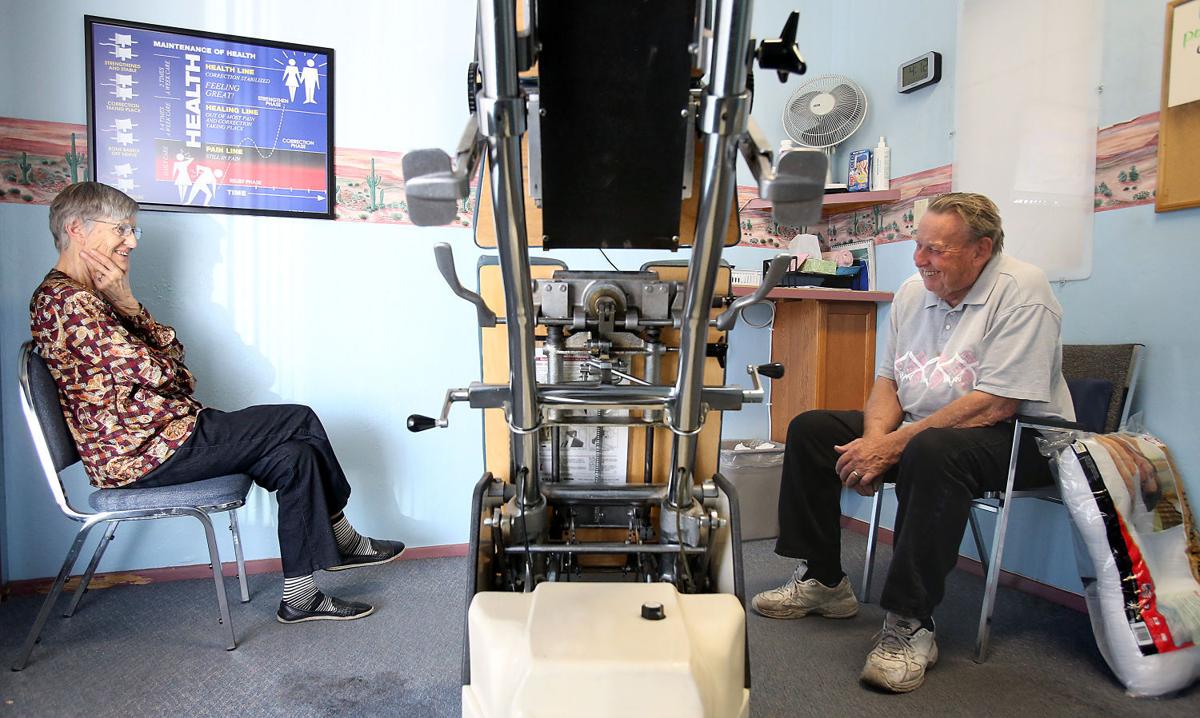Part 12 of 12.
I want to close with comments about the help and assistance I have found to be available in coping with my wife Alzheimer’s.
As I wrote earlier, I really dislike the title “caregiver.” My main objection is the implication that the one receiving care is totally helpless. Taking care of my dog is indeed a caregiving task. Taking care of a helpless infant is of course a caregiving job. But at least in the early and even much later stages of Alzheimer’s, caregiving is just giving up.
There will come a time, I hear, in the progress of Alzheimer’s when the sufferer is helpless, and at that time it is appropriate to supply a caregiver. But the disease progresses quite slowly in most cases. In the meantime, my main task is to focus upon any ability that remains, and not regard each loss of functionality as helplessness.
I have attended forums, lectures and presentations discussing the disease, and have far too often been almost angered at the failure of the facilitators to point out ways to keep the patient functioning. Many times they seem to ask us problem-solvers to regard the patient as more helpless than the facts exhibit.
Let me underscore some of the tips I have written about in this series, tips I have never heard mentioned in any lecture or discussion. No one has ever said that the patient uses words and phrases not only to mean something different from before, but also in a way that may continually change.
I have heard many group leaders comment about how patients may recall distant events but not recent ones. But no one has ever mentioned how Joan’s seemingly strange actions may, instead, be behavior that represents a value system (such as a passion for cleanliness) from the past. Understanding that value can give me a clue as to how to deal with the activity.
No one has pointed out that the patient may say “no” and yet mean the opposite. I have not heard anyone discuss how multitasking can be confusing and how one can let the patient function by single-tasking. I have seen heads shake and eyes roll at the mention of fecal incontinence, but have never received advice as to how to deal with it.
There is one thing I heard only once, but that was from a psychiatrist, and it conflicts with remarks I have heard in most group presentations: “Don’t worry too much about how you express your own feelings to the patient. You have a right to be upset, frustrated and less than always even-tempered. If raising your voice may remove some stress for you, go ahead. You need it. It may have bothered her greatly in the past, but now, in a moment she’ll forget your outburst.” I feel guilty when I lose my cool that way, but it does relieve stress and I am thankful that Joan’s memory loss allows me to express my feelings without hurting her. If I were stronger, I wouldn’t say things that way, but I am human, too, just as she is.
We are told to speak slowly and clearly, and to repeat ourselves until the patient understands what we are trying to say. Nonsense. Just as her words may mean totally different things, so also her understanding of your expressions bears little if any relationship to how those words would have been understood in “normal” times.
Following the “rules” may actually increase her confusion. It is necessary for me to remember that each moment is a different time for Joan.
Above all, I have never received encouragement to keep Joan functioning at as high a level as possible and not give up too soon, if at all. My approach is to try to find solutions to our problems. Yet it is important for me to recognize that some problems cannot be solved.
What I hate most is feeling alone even in the company of my beloved wife. I used to sing a song at weddings. One of the lines had this message and wish for the couple: “When you are married, your joys are doubled and your cares are divided in half.” The most devastating effect of Alzheimer’s is the fact that message is no longer part of our daily life.
Yet I have renewed appreciation for our moments of shared joy or sorrow. As the special moments occur – and they do — we are reminded that no matter what we face, we remain human. We remain children of God.





